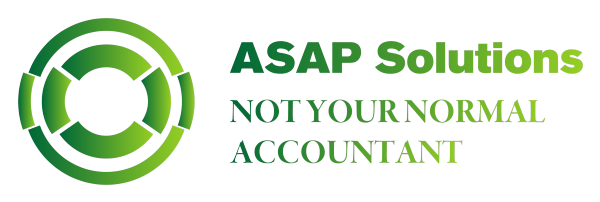Small Business Tax & Accounting Questions Answered!
Frequently Asked Questions
There are different business structures you can use, which have various benefits. Understanding how you want your business to run means you can move forward with the most suitable structure.
You should speak with a qualified accountant who can walk you through your options and set up the most suitable choice, ensuring that your structure meets all your regulatory and tax obligations.
Your Australian Business Number (ABN) is a unique 11-digit number required for most businesses to trade in Australia. It is free to register for an ABN, and the application is a simple process through the Australian Business Register.
If you intend to use a business name that is not your own name, you must register your business name. You do not need to register if you are conducting business under your own name as found on identification documents (not a nickname).
Simply put, Jane Smith sells cupcakes at the markets. If she is trading as cupcakes by Jane Smith, she won’t need to register.
However, if she wanted to simplify and use Jane’s Cakes, she would need to register the business name.
A Business Plan helps you understand your business goals and can help shape critical decisions. Your accountant can help you develop your business plan to have a complete understanding of any tax obligations and costs.
A Business Plan can also help you understand your priorities when making financial decisions. They will typically include cash flow projections and can support you in making informed decisions about the future of your business.
If you seek business finance, you will most likely need to present a business plan.
It depends on your business. Some industries require a license to operate and may have specific regulations that you need to comply with. You may wish to seek legal advice if you will be trading in a heavily regulated industry to make sure you are fully compliant with your regulatory obligations.
You are obligated to register for GST if your income is over $75,000 for the financial year.
You can, however, register for GST at any time. Once you are registered, you will need to charge GST and complete regular Business Activity Statements.
Registering for GST is optional if your business has a turnover of less than $75,000 per annum and you don’t meet any other criteria that would require you to register. If you provide taxi, limousine or rideshare services like Uber, you must register for GST even if you have not reached the threshold.
Depending on your business structure and requirements, you may require insurance. There are different types of insurance, and the risks you may wish to insure against vary between each industry. An insurance broker can assist you in finding the most suitable options.
It depends on your business, workload and tasks. Some roles may be better suited to a contractor; others you may want to keep in-house. Before making a decision, it is worth chatting to an accountant, so you understand your obligations, benefits and risks with each structure.
When starting up, some businesses will engage contractors for specific tasks, and as they grow and have consistency in their workload, they will bring those roles in-house.
Tax Planning involves strategically reviewing your expected tax obligations and how you can minimise your tax requirements. This is a proactive approach and will typically accompany a business plan.
Minimising your tax is about ensuring your business uses the appropriate structures and systems so that you don’t pay more tax than is necessary. This differs from tax avoidance, which is deliberately not reporting income to avoid tax and is illegal.
There are many options available; we suggest you consider your budget and the key factors you need your software to do. Software such as Xero, MYOB and QuickBooks can help you streamline the management of your accounts.
It’s great to be able to take different modes of payment. But without the correct setup, reconciling your accounts can be a nightmare!
Separating your business bank account from your personal bank account can help to streamline the management of your funds. If you take payments from various online sources such as Etsy, Stripe, Paypal, and Square, connecting your bank account to an accounting system that can reconcile all your transactions can make the management of your accounts a lot easier.
Terms and conditions sometimes get overlooked. But they protect you and your clients. Consider if you are a service-based industry and payment is via invoice. If someone does not pay you for work that has been completed, then your terms and conditions are there to protect you.
Having clear terms that you expect payments in can also help your cash flow with the expected payment dates.
You may also want to consider your refund policy and how long someone has to lodge a dispute. If you don’t have comprehensive terms and conditions, it could leave you legally and financially vulnerable in the future.
Many Solicitors offer business packs and will be able to help you protect yourself with terms and conditions, privacy policies, employment agreements, contractor agreements and other agreements as necessary.


